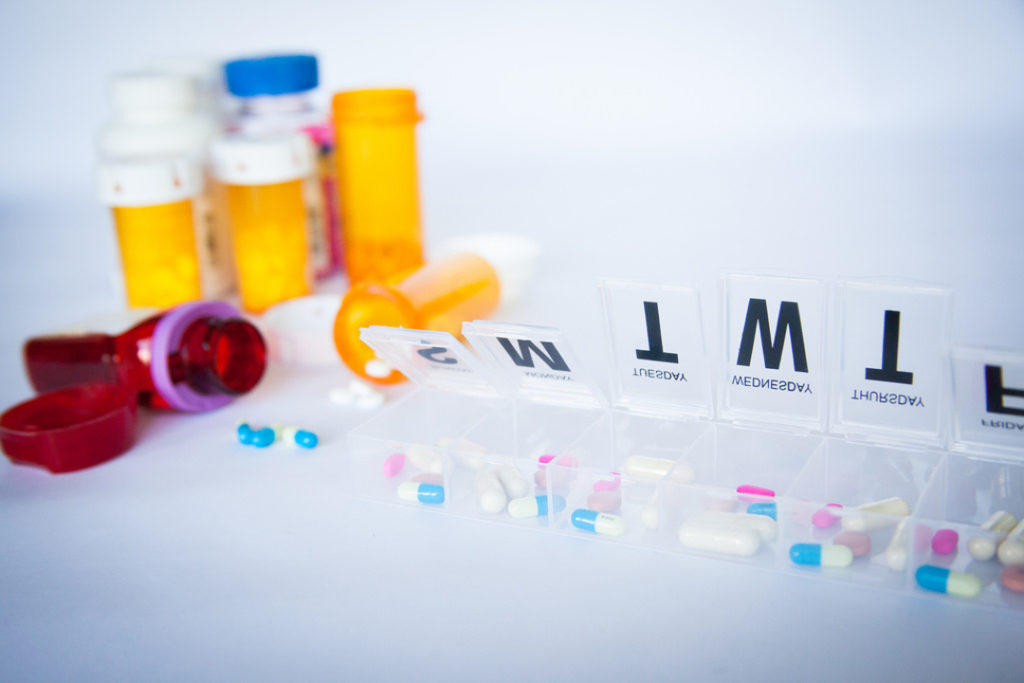
Contents
Drug Absorption
Drug absorption is the movement of a drug into the bloodstream after administration. A number of other factors may affect the absorption and bioavailability (the proportion of a drug or other substance which enters the circulation when introduced into the body and so is able to have an active effect) of a drug taken by mouth. Physiological characteristics include- How long the stomach takes to empty
- What is the acidity (pH) of the stomach
- How quickly the drug is moved through the digestive tract
Food and its Efect on Drug Administration
Food can act as a physical barrier to the surface of the gut wall and prevent certain medicines being absorbed into the bloodstream. The formulation of a drug influences its absorption. Food can affect both the rate and extent of absorption. The most important reason for timing a medication that is taken orally is to maximize its absorption so that more of the medication goes through the stomach into the blood.To Reduce the Side Effects
- Taking certain medicines with food can reduce the risk of side effects. Diabetes medicines such as gliclazide or glimepiride, for example, should be taken with food to reduce the risk of low blood sugar.
- It’s better to take some medicines that can cause nausea or vomiting after a meal or with meal to reduce these side effects. Examples include allopurinol, bromocriptine, and madopar. If nausea persists, your doctor may prescribe an additional drug to reduce the intensity or frequency of the nausea, or switch you to another medication.
- Some medicines can irritate the stomach and taking them with food will reduce its effect. Foods such as biscuits, sandwich, or a glass of milk are usually enough. Examples include aspirin, non-steroidal anti-inflammatory drugs (NSAIDs) such as diclofenac and ibuprofen and steroid medications (corticosteroids), such as prednisolone and dexamethasone.
- Medicines called antacids are taken to prevent heartburn, reflux and indigestion, which usually occur when acid is produced as food enters your stomach. Therefore, these medicines are most effective if taken immediately after, or during a meal.
Better Absorption
- Many medicines get absorbed better when food is not present and hence are taken on an empty stomach (an example is the hormone thyroxine which must be taken first thing in the morning).
- A few actually get absorbed better when food is present an example of this is the antibiotic azithromycin. Pain medications and certain antibiotics can irritate the lining of the stomach and therefore are best taken with or after food.
- Some drugs work on the wall of the stomach to reduce the absorption of food and this is the desired therapeutic effect an example of this is the anti-diabetic drug called acarbose. This drug must be taken with the first bite of food. Similarly, other oral anti-diabetic drugs and the injection insulin are taken before food because that is when they need to act, just after you eat a meal.
Medicine which should not be Washed Away
Preparations such as mouthwashes, liquid nystatin and miconazole gel for oral thrush or mouth ulcers must be used after meals. This is because eating food washes the medicine away too quickly. Food, other drugs and digestive disorders can affect drug absorption and bioavailability. For example, high-fiber foods and calcium supplements may bind with a drug and prevent it from being absorbed. Laxatives and diarrhea, which speed up the passage of substances through the digestive tract, may reduce drug absorption. For this reason, osteoporosis medicines risedronate and alendronate must be taken on an empty stomach with water only.Simple Rules While Taking Medicines
Simple rules can make the administration of necessary medicines safer.- Read the label on the container and, if you don’t understand something or need more information, ask the doctor or pharmacist.
- If a doctor prescribes a medicine for you, make sure the doctor knows all the other medicines you are taking. This includes any prescription, over-the-counter and complementary medicines, as well as any herbal preparations.
- Read directions, warnings and interaction precautions printed on all medicine labels and packages. Even over-the-counter medicines can cause problems.
- Take medicine with a full glass of water.
- Don’t stir medicine into your food, chew or crush tablets, or pull capsules apart (unless your doctor tells you to do so), because this may change the way the drug works.
- Don’t take vitamin pills at the same time you take medicine because vitamins and minerals can interact with some drugs.
- Don’t mix medicine into hot drinks, because the heat from the drink may destroy the effectiveness of the drug.
- Never take medicine with alcoholic drinks.